JODI WINDVOGEL has won the
Marilyn Stafford FotoReportage Award 2025 for her photo essay: LIFE UNDER OCCUPATION: INSIDE CISSIE GOOL HOUSE & CAPE TOWN’S HOUSING CRISIS. Further shortlisted artists and their images are also shared today for the first time.
Jodi Windvogel is a South African documentary photographer and filmmaker whose work is rooted in long-form storytelling, often focusing on deeply personal narratives. Their photography explores themes of land, memory, gender, and displacement – always with the intention of challenging stereotypes and reframing how marginalised communities are seen and understood. With a thoughtful, intimate approach, Jodi captures moments of strength and vulnerability, creating space for empathy and honest conversation. They are a member of the African Photojournalism Database (APJD) and African Women Photograph, and in 2023, received the global Fujifilm GFX Grant for their powerful project on femicide in South Africa.
This photo essay documents daily life inside Cissie Gool House, a former public hospital in Cape Town that has been occupied since 2017 by over 1,500 people resisting displacement. Transformed into a self-organised community, the occupation responds directly to Cape Town’s deepening housing crisis. Life Under Occupation focuses on the strength, dignity, and mutual care that residents build in a space marked by legal uncertainty. Rather than framing the occupation as a protest alone, the work highlights it as a solution – an act of urban resistance and survival led by working-class families. By partnering with housing justice organisations, the images will support local advocacy and public education, contributing to wider efforts to rethink housing policy and urban belonging. The project is both personal and political – an act of visual solidarity aimed at shifting narratives and creating space for more inclusive, people-led futures.
On receiving news of winning the award, Jodi Winwogel says
I feel absolutely honoured to be receiving the Marilyn Stafford FotoReportage Award 2025. Thank you so much to the entire jury for believing in my project. This recognition means the world to me. With this award, I’ll be able to continue and complete my work at Cissie Gool House - while also letting the community know that their courage, resistance, and stories are being acknowledged on a global stage. I’m incredibly grateful for this opportunity and I’m looking forward to deepening and expanding the project with this support.
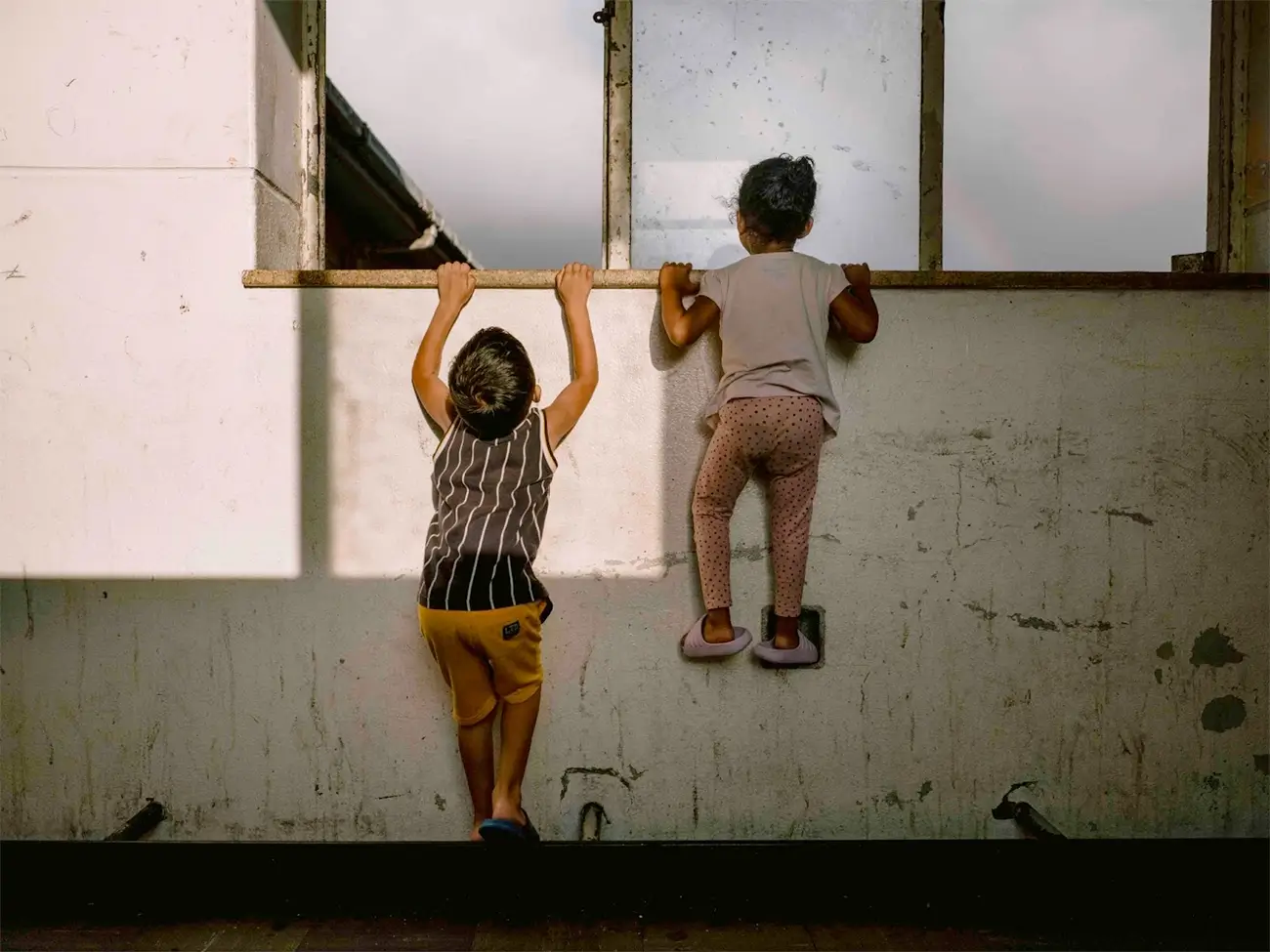
Children at Cissie Gool House look through a broken window. © Jodi Windvogel
is a Venezuelan journalist, visual storyteller, Magnum Foundation fellow, TEDx speaker and National Geographic explorer based in Caracas. She tells representative stories about gender, environment and social phenomena that put the dignity of participants in the centre of the narrative while using different formats and a perceptive approach to magic. She was awarded the Women Photograph grant in 2024 and two POY Latams (2023). Hernández Briceño co-founded the women’s collective Ayün Fotógrafas. She teaches the Ojo Pelao and MiraVzla free workshops, making photography education more accessible in her country. She believes in the importance of creating alliances with communities through horizontal practices that combine education and storytelling initiatives. Her work explores narratives that search for humanity in the space between seemingly opposing ideas as a direct result of growing up, documenting and resisting in Venezuela, a place of deep contradictions.
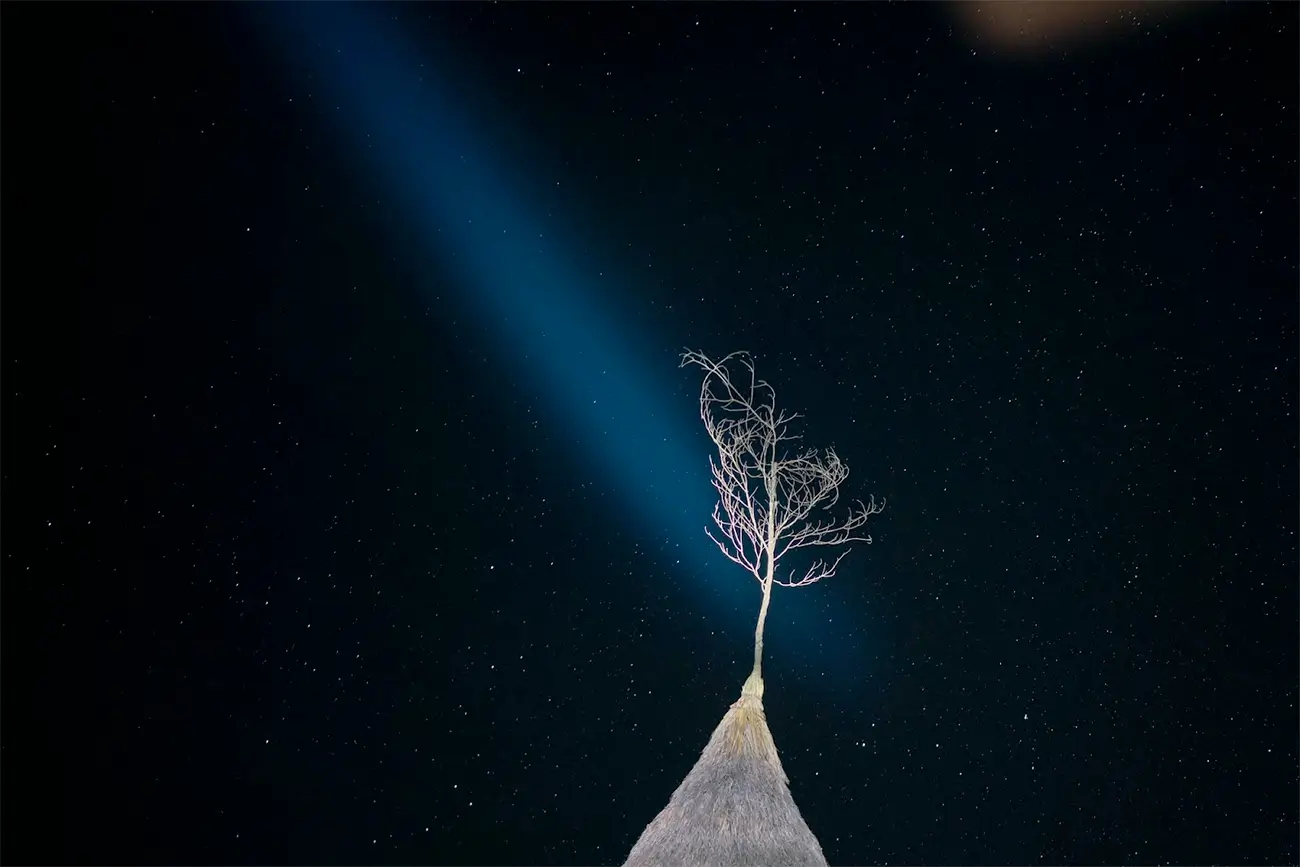
A light shines upon the tip of the communal home ‘churuata’ in the Amazonas state, Venezuela. In the Huöttöja worldview, this branch functions as an antenna that connects the earth with the spiritual realm. The ‘churuata’ is the place where shaman Jattupa tells the stories that conform the Huöttöja way of life, looking at humans not as separate from nature but as an extension of it. © Andrea Hernández Briceño
From a bird’s view, the Venezuelan Amazon rainforest looks like scratched skin. For decades it has been dug and broken by the booming mining industry. At the beginning of the gold fever, many indigenous communities resisted, but in the aftermath of transculturation and violence perpetrated upon them by authorities and different groups that operate in the area, most have joined the mining efforts. But the leader of the Huöttöja people that inhabit this territory, shaman Jattupa, has a vision for the future: the only way to save humanity is to demarcate and protect the Cataniapo river in the Venezuelan Amazon rainforest and exchange knowledge. This exchange has taken the form of workshops that centre around the power of photography and how this tool that has mostly been used to exploit them can be yielded to dismantle the colonising gaze.
Ukrainian photographer - Anya Tsaruk
Anya Tsaruk is a Ukrainian photographer based in Berlin. Following the full-scale Russian invasion of Ukraine, her work now focuses on the themes of identity, trauma, migration, and community. Through photography, she aims to raise awareness about the war in her homeland and honour the resilience and strength of people impacted by it. Anya has a BA in Culture and Media Management from Jagiellonian University (2016-2019), Kraków and has won numerous awards including The Photography Foundation Awards – Portraits & People, winner 2025, Nikon Fotobus Grant winner, first place 2024, The Ukrainian Association of Professional Photographers grant winner 2024, The V&A Parasol Foundation Prize for Women in Photography winner 2023.
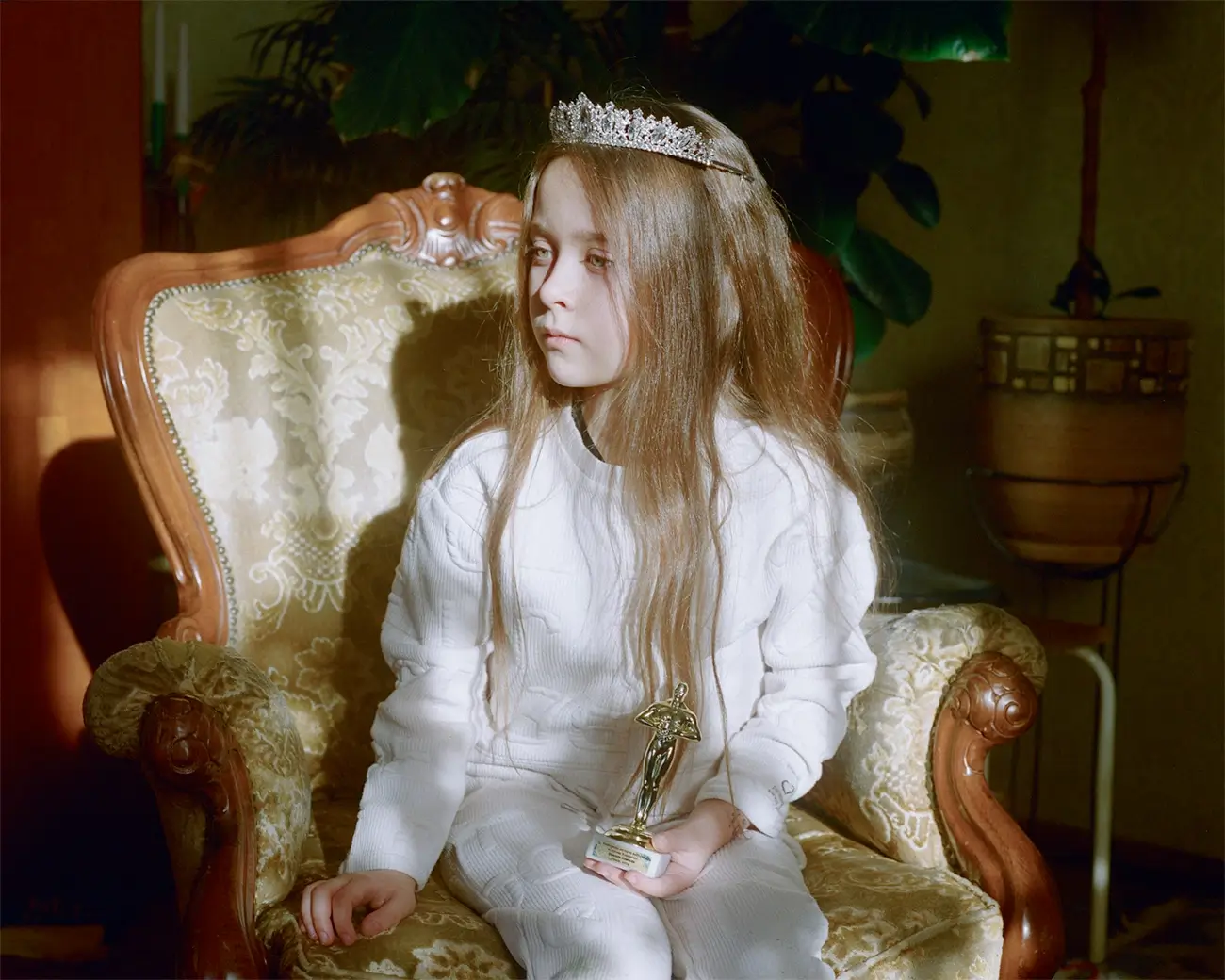
Kamila shows her award for Best Actress in the play The Snow Queen. Growing up in Chornyi Ostriv, an urban village in the Khmelnytskyi region, she is actively involved in many creative pursuits, including acting, modelling, acrobatics, and painting. © Anya Tsaruk
I Hope Your Family is Safe is a project about my loved ones living in Ukraine, inspired by the well-meaning but unsettling phrase often said to me by foreigners. The work explores the layered and uncertain meaning of ‘safety’ in a country in war. The project challenges mainstream representations of contemporary Ukraine, offering a narrative grounded in love, hope, and resilience. Through it, I aim to contribute a piece to the mosaic of Ukrainian identity — my vision of Ukraine, one that reflects my people’s bravery, vulnerability, defiance, and desire for freedom. With a tender and intimate approach, I hope to challenge the ‘othering’ of people at war and evoke empathy that is rooted not in pity, but in shared human experiences.
Mexican photographer - Greta Rico
Greta Rico is a Mexican visual artist, journalist and feminist educator focused on issues of gender, climate change, and food. Her work focuses on exploring new social representations in contemporary visual culture. Through her projects she reflects on the care economy, coloniality and the social trauma of current phenomena. Greta is a Leica Partner, she is also a member of the Advisory Committee of Women Photograph, a co-founder of Rosa Chillante and a proud member of Diversify Photo, Foto Féminas, Photographers Without Borders and Femgrafía. She has a Master’s Degree in Feminist Studies and is part of She Source, a panel of experts on gender issues from the Women’s Media Center. Since 2024, Greta has been part of the National System of Art Creators in Mexico, her documentary projects have received grants such as the Leica Women Photo Project Grant, the Bertha Challenge Fellowship, the Women Photograph Grant, the National Geographic COVID-19 Reporting Grant and the Bob and Diane Fund Fellowship among other awards and recognitions.
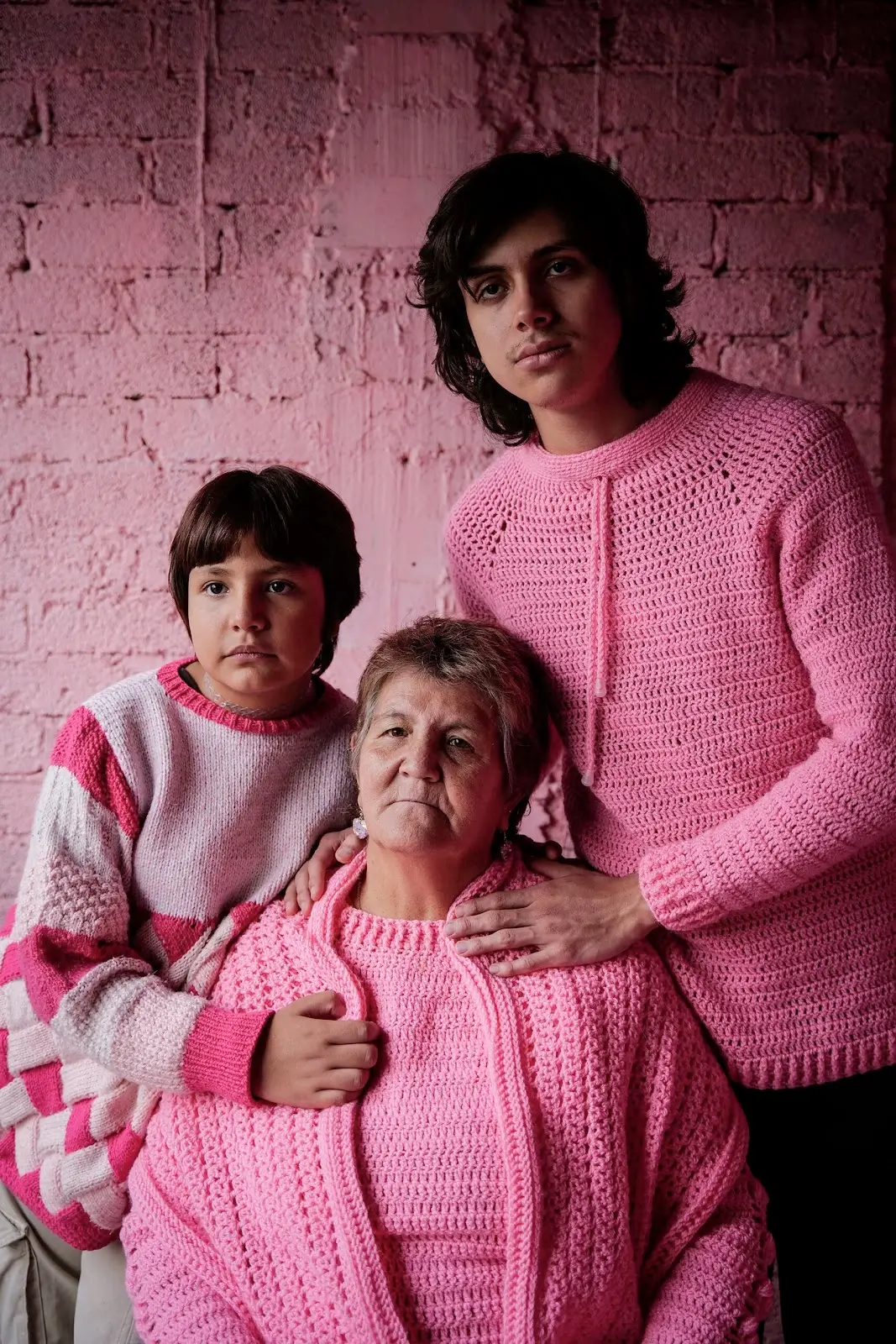
Since 2016, when Campira was murdered, Alexa and Vladimir were left in the care of their grandmother Margarita who, despite arthritis pain and the lack of a job, is now responsible for their care. Due to the lack of economic resources, Margarita and her grandchildren still live in the same house where Campira’s feminicide occurred in Mexico City. © Greta Rico
Ximena, 16, has suffered nightly anxiety attacks since she was eight. Nicole has lived with stress-induced dermatitis for six years. What they share is a deep wound: both lost their mothers to femicide. In Mexico, this crime takes the lives of ten women every day, according to UN Women, yet its impact – especially on the children left behind – remains largely unseen. Caring in the Face of Absence is a visual investigation into the aftermath of femicide. Through collaborative portraits with families, I incorporate pink motifs to reclaim the pink crosses of Ciudad Juárez – symbols of impunity and loss. Using an aesthetic of tenderness, pink becomes a thread that weaves together trans-generational trauma, emotional scars, and the resilience of orphaned children and their caregivers. In a country where narratives often re-victimise through hyper-violent imagery, this project seeks restorative justice: it is about listening, accompanying a healing process, and inviting society to be part of it. When using the right methodologies – even in a setting of systemic impunity – artistic practices can foster empathy, visibility, and change.
Submissions were reviewed by international panel including:
Andrea Bruce: Photojournalist, Co-owner NOOR Photo Agency, Nikon Ambassador.
Donna De Cesare: Photojournalist, Associate Professor, University of Texas at Austin.
Nina Emett: Director of FotoDocument, Documentary Photographer, Curator, Co-founder POST
Neo Ntsoma: Photojournalist, Founder of Neo Ntsoma Productions.
Ana Maria Arévalo Gosen: Winner Marilyn Stafford FotoReportage Award 2023, Photographer.
The Marilyn Stafford FotoReportage Award of £3,000, facilitated by FotoDocument and generously supported by Nikon, is granted annually to a professional woman photographer towards the completion of a compelling and cohesive documentary photo essay, which addresses an important social, environmental, economic or cultural issue, whether local or global that has a focus on positive solutions.
The Marilyn Stafford FotoReportage Award 2025 submissions came from a wide range of countries including: South Africa, Netherlands, Brazil, Venezuela, Ethiopia, USA, and Ukraine.
The works considered for the prize must showcase positive solutions to any issues they raise in order to contribute to constructive photojournalism, in line with the wishes of Marilyn Stafford (1925-2023) and the aims of FotoDocument. The Award is reserved solely for documentary photographers working on projects which are intended to make the world a better place and which may be unreported or under-reported.
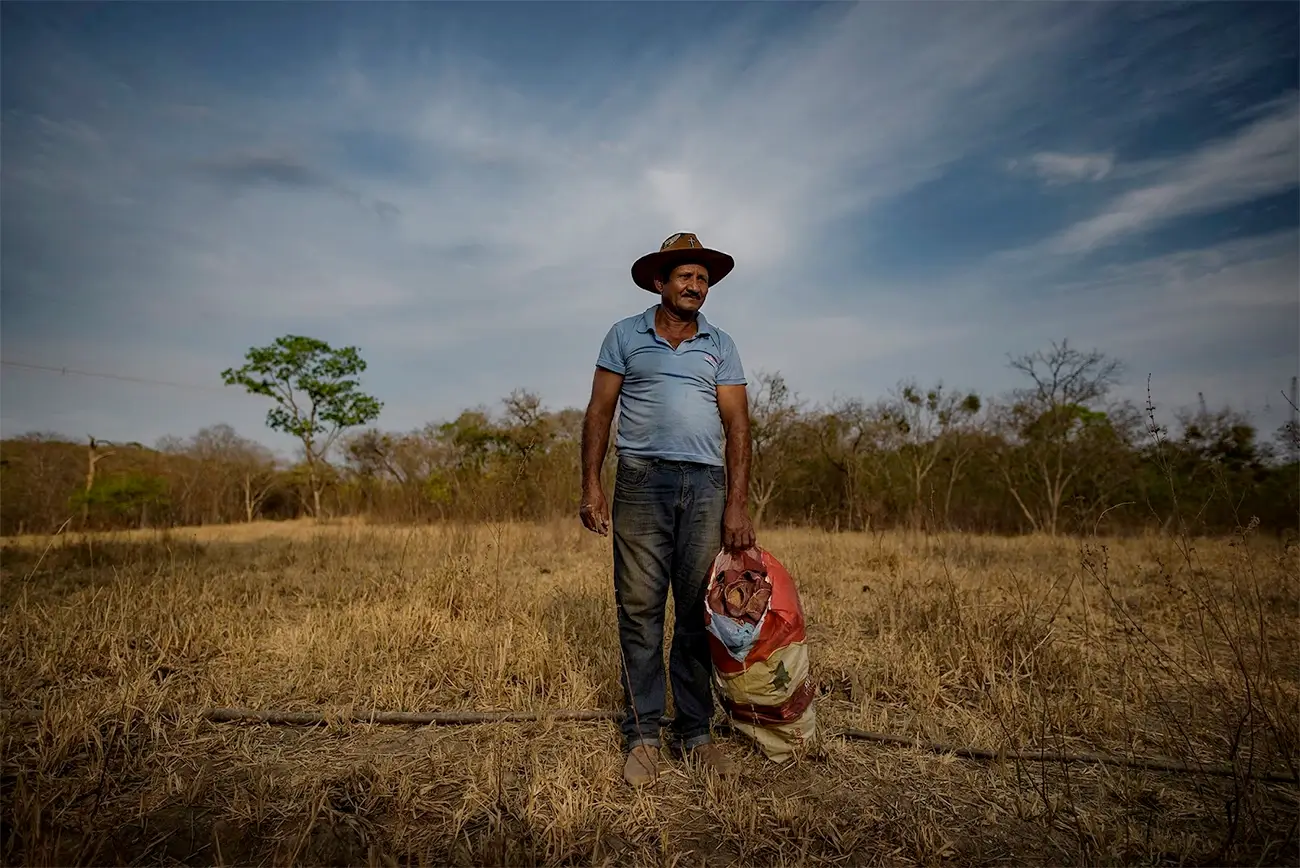
Denilson stands holding a sack full of chichá, a native fruit of the Cerrado that, until recently, was often left to rot on the ground during harvest season. Today, he sees its true value — its seeds can be used in crafts, its pulp in food, and its nuts, rich in antioxidants and anti-inflammatory properties, have medicinal potential. ‘People don’t realise the wealth that’s right here in front of us,’ Denilson says. ‘The Cerrado gives us fruits like chichá that can feed us, heal us, and even create jobs — but we’ve been taught to ignore it.’ © Ana Caroline de Lima, Shortlisted
Born in Cleveland, Ohio, USA, Marilyn Stafford’s photographic career was accidentally launched in New York in 1948 when she was asked to photograph Albert Einstein by friends making a film about him.
From there on, her photography took her across the world, starting in Paris in 1950. There her friendship and guidance by Magnum founders Robert Capa and Henri Cartier-Bresson shaped her work.
In 1958 Stafford travelled to Tunisia to document the plight of Algerian refugees fleeing France’s ‘scorched earth’ aerial bombardment in the Algerian War of Independence. While completing commissions for a number of Paris fashion houses she also photographed children living in one of the city’s worst slum neighbourhoods, Cite Lesage-Bullourde.
In the early 1960s Stafford traveled widely in Lebanon photographing the everyday lives of the Lebanese people and to India in 1971 where she documented the country’s only woman Prime Minister, Indira Gandhi, and her involvement in the Bangladesh Liberation War.
She settled in England in the mid-sixties, where she was one of only a handful of women photographers working on Fleet Street. Stafford’s work spans from 1948-1980 covering a range of subjects including refugees, tribal peoples, international fashion and prominent historical figures including Edith Piaf, Lee Marvin, Sir Richard Attenborough, Joanna Lumley, Sir Alan Bates.
www.marilynstaffordphotography.com
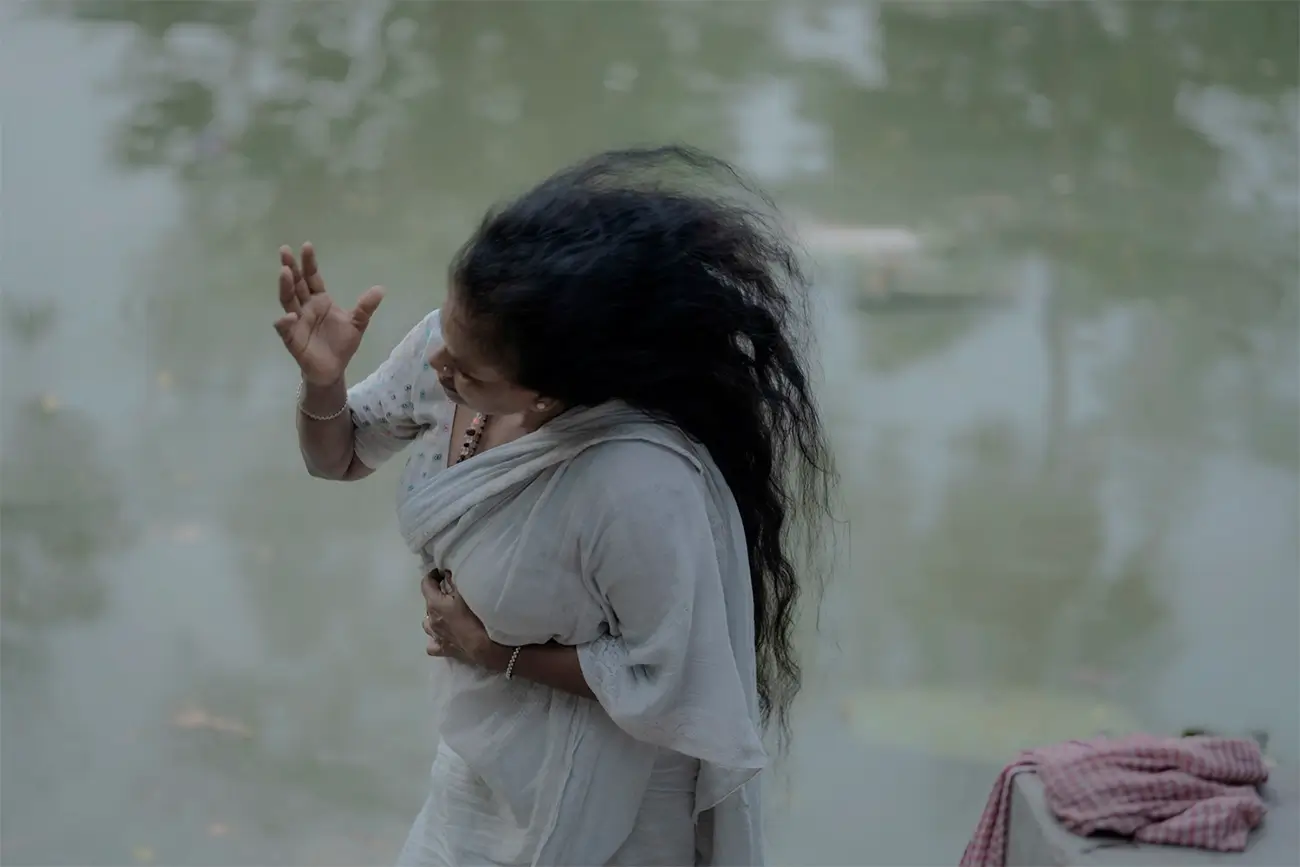
“Sometimes she floats high up in the sky, sometimes in the water.” Paddamala, Nadia, West Bengal, India. © Taniya Sarkar, Shortlisted
Founded in 2012, and led by Artistic Director Nina Emett, FotoDocument is an award-winning arts social enterprise, which brings visibility to positive social and environmental initiatives around the world through documentary photography, film, and multi-media products and installations. The work creates significant impact through fostering a profound sense of active global citizenship by engaging participants and audiences in powerful storylines to bring hope and spark meaningful change. It has been widely exhibited at a range of venues including: Victoria & Albert Museum, House of Commons, Oxo Tower London, Excel London, Brent Civic Centre, Brighton Railway Station, Hove Promenade among many others. Commissioned photographers include emerging artists and prominent names in photography and partnering organisations include: CARE International, Bioregional, Salusbury World Refugee Centre, Photoworks, London College of Communication. FotoDocument has received funding from Arts Council England, trusts & foundations, multiple sponsors as well as trading as a social enterprise through: FotoSchool, FotoStory and FotoAgency.
Fotodocument.org
About About About Nikon
Nikon is a world-leading provider of imaging products and services. Its innovative optics technology—from consumer and professional cameras to lenses, system accessories, and sport and recreational optics —is powered by over 100 years of experience. The brand is globally recognised for setting new standards in design and performance, with Nikon’s revolutionary Z series mirrorless cameras and NIKKOR Z lenses representing a new dimension of optical performance.
Nikon is committed to leading imaging culture and enables some of the world’s best visual artists to reach their creative potential through visual storytelling. Its award-winning photographic equipment empowers photographers and videographers to realise their creative vision at the highest level. Its award-winning sport and recreational optics bring the world closer for pursuits ranging from birdwatching and stargazing to theatre, golf, and travel.
As a trusted visionary partner, Nikon unites all levels of content creators through its engaged community, unrivalled technical expertise, and access to educational resources, via initiatives such as The Nikon School.
www.nikoneurope.com
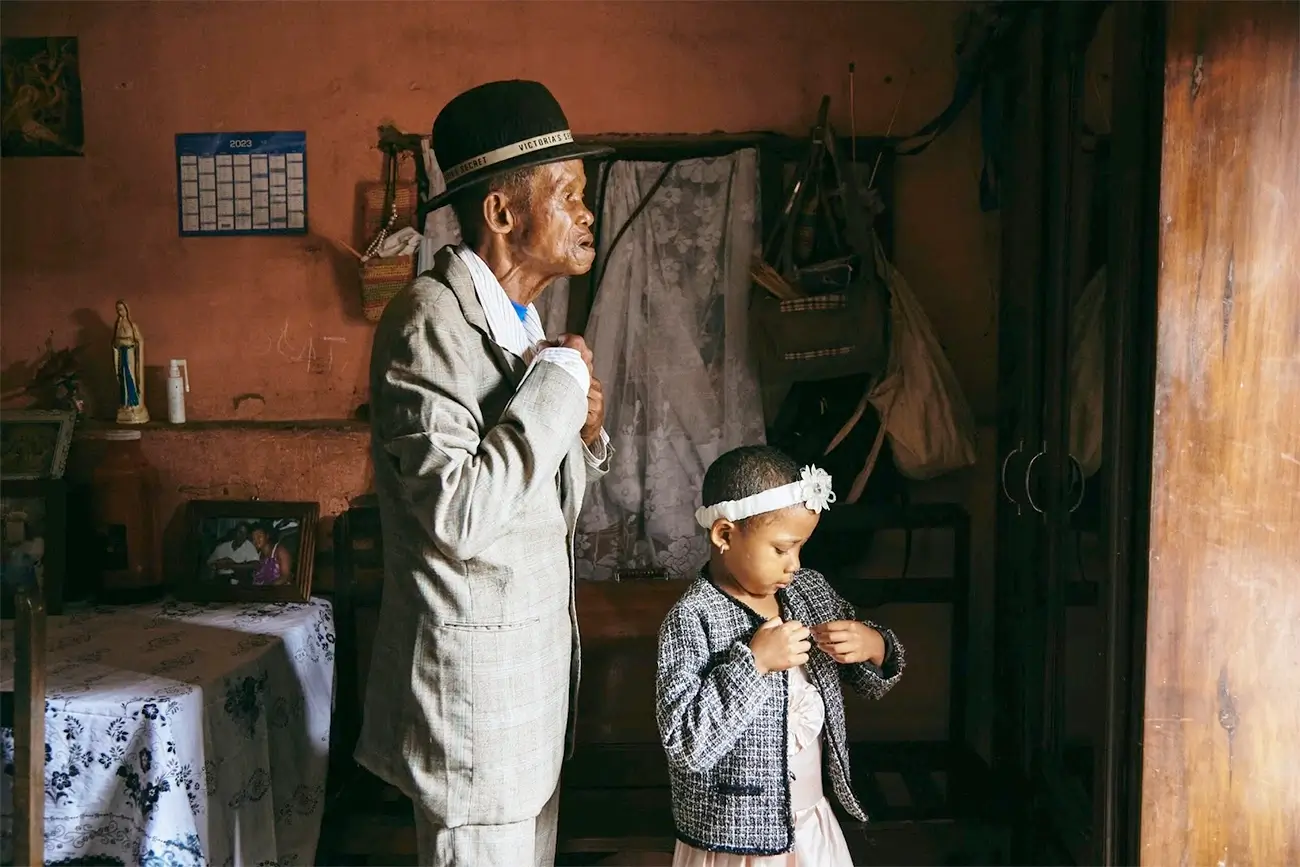
Dada Paul Rakotazandriny (91), who is living with dementia, and his granddaughter, Odliatemix Rafaraniriana (5), get ready for church on Sunday morning at his home in Antananarivo, Madagascar. © Lee-Ann Olwage, Shortlisted








